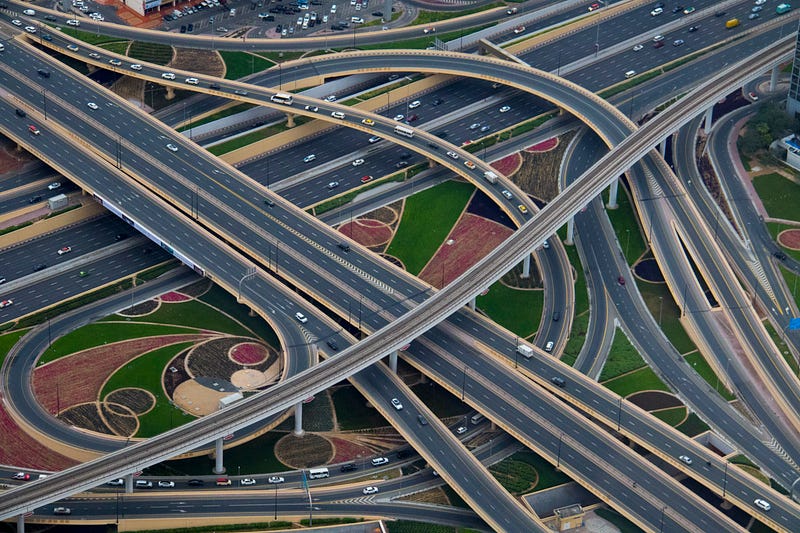Can You Make a Difference in the Fight Against Climate Change?
Written on
Understanding the Climate Crisis
Climate change poses a significant risk to humanity's future. Its repercussions are felt across ecosystems and wildlife. Recent reports from the Intergovernmental Panel on Climate Change (IPCC) indicate that global temperatures could rise by more than 1.5°C (2.7°F) by the early 2030s. Additionally, sea levels are anticipated to increase at an unprecedented rate, with projections of a 12-inch rise by 2050. Given this immense challenge, many wonder, “How can I contribute to the solution?” This article aims to provide insights on this critical issue.
Identifying the Most Harmful Greenhouse Gases
Several gases significantly contribute to climate change, with four key players at the forefront. Carbon dioxide (CO2) is the most prominent, largely due to its extensive emissions. Although CO2 lingers in the atmosphere for centuries, its impact per unit is less severe compared to other gases on this list. Methane, while emitted in lesser amounts, possesses a warming potential approximately 25 times greater than CO2 but only remains in the atmosphere for about a decade. Nitrous oxide follows, with a staggering heat-trapping ability 300 times that of CO2. Lastly, fluorinated gases represent the most potent group, with a global warming potential up to 23,000 times that of CO2.
Fun Fact: The gas used in tennis balls is so detrimental to the environment that releasing just 1 kilogram of sulfur hexafluoride is equivalent to driving five cars for an entire year!

Evaluating Dietary Changes and Their Impact
A common question arises: Would eliminating certain foods from my diet make a difference? The short answer is yes, but with caveats. By removing beef from your diet, you could save approximately 0.63 tonnes of CO2 emissions. If all meat, including beef, was eliminated, the reduction could reach 1.122 tonnes. To put this into perspective, 2 tonnes is roughly equivalent to the weight of a car. If everyone adopted a meat-free diet, it could potentially cut CO2 emissions by 24%. However, with a growing global population and increasing meat demand, experts suggest that a 50% reduction in CO2 emissions is necessary by 2030, aiming for net-zero emissions by 2050. While plant-based foods do produce CO2, studies indicate that for every kilogram of plant-based food, no more than 4 kg of CO2 is emitted. In contrast, the CO2 emissions for various meats are as follows:
- Beef: 70 kg of CO2 per kg
- Lamb: 40 kg of CO2 per kg
- Pork: 15 kg of CO2 per kg
- Poultry: 10 kg of CO2 per kg
Although switching to a plant-based diet could lower CO2 emissions, it remains unlikely that everyone will make this transition.

The Role of Transportation in Emissions
Transportation is a major source of CO2 emissions. With an estimated 1.5 billion cars on the road, it’s important to evaluate their environmental impact. On average, a car emits 220 grams of CO2 per mile, and with typical annual driving distances around 7,500 miles, each car produces about 1.65 tonnes of CO2 yearly. Collectively, all cars emit approximately 2.475 billion tonnes of CO2, contributing to about 6.5% of global emissions in 2021. If both car usage and meat consumption were eliminated, CO2 emissions could potentially decrease by 30%, yet this still falls short of the necessary 50% reduction.
Public Transportation: A Greener Alternative?
Buses and trains provide more sustainable options for travel. On average, a bus emits 52 tonnes of CO2 annually, with around 3 million buses in operation globally, resulting in total emissions of about 156 million tonnes—just 0.4% of total CO2 emissions in 2021. For comparison, trains emit 177 grams of CO2 per mile, making them the most environmentally friendly option among common modes of transport, contributing roughly 318 million tonnes annually (about 0.9% of total emissions).
Air Travel: The Environmental Challenge
Airplanes significantly contribute to climate change, emitting around 90 kg of CO2 per person per hour on a Boeing 737-400. According to data, air travel accounts for 2.5% of global CO2 emissions, primarily due to emissions released into the upper atmosphere. This has prompted global leaders to seek solutions for reducing aviation's environmental impact.
Taking Action Against Climate Change
Every individual can play a role in combating climate change. Steps include reducing meat consumption, evaluating the necessity of car travel, and minimizing electricity use. However, individual efforts alone will not suffice. Collective action from governments is crucial, and citizens must advocate for those who prioritize environmental responsibility. While individual lifestyle changes could theoretically reduce emissions by about 35%, the reality is that most emissions stem from production activities. Therefore, it is essential for governments and corporations to take accountability and enact policies aimed at emission reductions.
Positive Trends to Note
There is some encouraging news: over the past five years, the frequency of flights per person has declined, and car emissions have reduced significantly in the last decade. While there is still much work to be done, progress is being made.
To explore the calculations and sources behind this discussion, check out the article:
The Numbers Behind ‘Can You Fix Climate Change?’
Sources, Maths and More Behind The Article ‘Can You Fix Climate Change?’
Video Insights on Climate Change Solutions
The first video, "Can YOU Fix Climate Change?" delves into individual responsibilities and actions that can help mitigate climate change.
In the second video, "We WILL Fix Climate Change!", the discussion focuses on collective efforts and future strategies to address the climate crisis.
If you found this article helpful, consider giving it a clap and following for more insightful content. This is part of "Your Daily Science," where I explore fascinating scientific topics you might not be aware of.